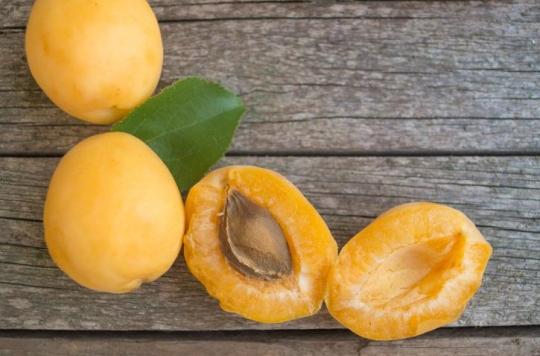They may be edible, but the almonds in apricot kernels are not without danger to health. Consumed in high doses, they can lead to cyanide poisoning. ANSES is sounding the alarm.

On the Internet, it only takes a quick search to find multiple sites that praise the benefits of apricot kernels on our health. Supposedly “anti-cancer” and rich in vitamin B17, they would help fight against oxidative stress as well as cholesterol and would be beneficial to the immune system.
What these sites don’t say is that when eaten in large quantities, the almonds in apricot kernels put them at risk of cyanide poisoning.
154 cases of poisoning in 5 years
This is what the National Agency for Food, Environmental and Occupational Health Safety (ANSES) reminded us of. In a statement dated Friday, July 27, the public health facility warned consumers about consuming apricot kernels.
Although these are used safely in jams, consuming them as a “snack” can indeed lead to cyanide poisoning. Indeed, “apricot kernels contain a significant amount of amygdalin, a compound of natural origin which converts into highly toxic cyanide during digestion”. ANSES therefore recalls the recommendations of the European Food Safety Authority (EFSA): 1 to 3 almonds per day for adults and half of a small almond for young children.
In her report, she mentions 154 cases of intoxication between January 2012 and October 2017. Two cases in particular illustrate the dangers of excessive consumption of almonds: first that of a 54-year-old woman who was hospitalized in hypotension after consuming 50 almonds in one day. Finally, that of an 87-year-old man who had eaten 40 and suffered from a heart attack. In the other cases, numerous symptoms have been reported: dizziness, feeling sick, headache, digestive disturbances, palpitations, difficulty in breathing.
“No scientific proof” of their anti-cancer virtues
What ANSES particularly deplores is the absence of a vigilance message accompanying the consumption of apricot kernels. “In recent years, a craze has appeared for these apricot kernels, marketed as a food for fighting cancer. High doses, from 10 almonds per day for prevention to 60 almonds for curative purposes, are recommended.”
However, she recalls, there is to date “no scientific proof of their interest in the curative or preventive treatment of cancer”.
It therefore recalls that “high-dose consumption of these almonds can lead to signs of acute intoxication such as convulsions, respiratory disorders, a decrease in heart rate, loss of consciousness, or even a coma”. Their consumption must therefore remain moderate and not exceed the recommendations mentioned above.
.

















